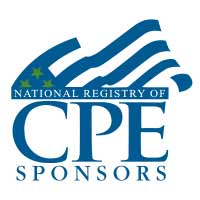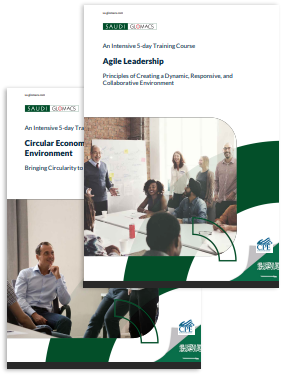An Interactive 10-Day Training Course
The Oxford Financial Excellence Programme
Planning, Budgeting, Costing and Hedging Risks
Course Overview
This GLOMACS training seminar entitled The Oxford Financial Excellence Programme provides business professionals with a deeper understanding of financial management as practiced by today's most powerful companies by demystifying the complex world of finance, and providing the tools and insights that you will need to meet your own professional goals and the greater goals of the organisations you serve.
Modules
This training course is split into two modules:
Module I - Corporate Financial Planning, Budgeting & Control
Module II - The Oxford 5-Day MBA in Finance
Each module is structured and can be taken as a stand-alone training course; however, delegates will maximise their benefits by taking Module 1 and 2 back-to-back as a 2-week training course.
Training Outline
Module 1: Corporate Financial Planning, Budgeting & Control
DAY 1: Corporate Financial Planning
- Strategic Planning
- The Objective of the Firm – Meeting Shareholder & Stakeholder Objectives
- Agency Theory – The Relationship between Shareholders & Management
- Creative Accounting and the Case of Enron
- Financial Management & Financial Planning – The Scope, Role & Responsibilities of Financial Management
- Preparing a Financial Plan – The Master Budget
- Forecasting Future Cash-flows and Financial Modelling
- Time Series Analysis, Correlation & Regression
DAY 2: Financing the Plan
- Sources of Finance – Long Term & Short Term
- Evaluation of the Types of Finance - Equity vs. Debt Finance
- Hybrid Finance & Financial Engineering
- The Dividend Decision
- The Cost of Capital and Weighted Average Cost of Capital (WACC)
- Capital Asset Pricing Model (CAPM)
- Accounting Rate of Return (ARR)
- Net Present Value (NPV), Internal Rate of Return (IRR) Capital Rationing & Payback
DAY 3: Preparing & Managing Budgets to Support the Financial Plans
- Definition of Budgets, the Budgetary Process and Budgetary Control
- Types of Budgets-Fixed, Flexible, Incremental and Zero Based
- The Purpose / Benefits & Problems / Limitations of Budgets
- Setting / Implementing Effective Budgets - Eliminating the Problems
- Responsibility Accounting and Absorption Costing
- Activity-Based Budgeting / Costing (ABB, ABC)
- Variance Analysis, Cost Behaviour, Break Even Analysis & Sensitivity / What If Analysis
- What-If Analysis combined with Du-Pont Analysis
DAY 4: Managing and Controlling Cash Flow to Support the Financial Plan
- Cash vs. Profit & The Cash Conversion Cycle
- Calculating and Managing the Cash flow Cycle
- Cash Flow Ratios
- Working Capital
- The Cost of Maintaining Working Capital
- Maintaining the Optimum Level of Working Capital
- Working Investment Ratios
- Preparing a Monthly Cash Flow Forecast
DAY 5: Managing Financial Risk
- Risk Management & Types of Risk
- Identifying Risk – SWOT Analysis
- The Major Quantitative & Qualitative Risks Facing Companies
- Establishing a Risk Management Strategy
- Financial Risk Management & Hedging Techniques
- Managing Exchange Rate & Interest Rate Risk
- Derivatives-Forwards, Futures, Options & Swaps
- Risk Management Glossary of Terms
Module 2: The Oxford 5-Day MBA in Finance
DAY 6: An Introduction to the Financial Markets
- An Introduction to the Equity Markets
- IPO
- Market Indices
- International Equity Market Links
- An Introduction to Bond Markets
- Long Term vs. Short Term
- Treasury vs. Corporate
- Types of Bond
- An Introduction to the FX Market
- The Spot and Forward Market
- Exchange Rate Trends and Linkages
- Carry Trades
- An Introduction to the Derivatives Market
- Futures
- Options
- The Link between Risk and Return
DAY 7: Evaluating Investment Opportunities
- The Markowitz Model of Portfolio Risk
- The Capital Asset Pricing Model
- A Practical Application of the CAPM to a Range of Companies
- The Time Value of Money and Discounted Cash Flow Techniques
- The Gordon Growth Model
- A Practical Application of Forecasting Dividends
- Determining the Cost of Debt
- The Weighted Average Cost of Capital (WACC)
- Investment Appraisal using the Net Present Value Approach
- The Importance of the Cost of Capital
- Scenario Analysis
- Payback and Adjusted Payback
- The Internal Rate of Return (IRR) Approach
- A Practical Application of the IRR Approach
- Pitfalls in using the IRR Approach
- Real Options
DAY 8: A Walk through an Annual Report
- The Balance Sheet
- The Income Statement
- The Cash Flow Statement
- Ratio Analysis
- A Practical Application of Ratio Analysis
- Forecasting Sales
- The Cost of Sales Approach
DAY 9: The Corporate Financing Decision
- Financial Leverage
- Modiglianni and Millers Theory of Capital Structure
- The Risk of Bankruptcy
- The Optimal Capital Structure
- The Dividend Decision
- The Clientele Effect
- The Taxation Effect
- The Principal Agent Problem
- The Market for Corporate Control
DAY 10: Risk Management
- Hedging Exchange Rate Risk Using
- The Forward Market
- The Options Market
- Zero Cost Collars
- Hedging Commodity Price Risk Using
- Options
- Futures
- Practical Application of Airlines Hedging Fuel Price Risk - The Importance of Correlation
Certificates
- On successful completion of this training course, GLOMACS Certificate will be awarded to the delegates
- Continuing Professional Education credits (CPE) : In accordance with the standards of the National Registry of CPE Sponsor, one CPE credit is granted per 50 minutes of attendance
Accreditation

GLOMACS is registered with NASBA as a sponsor of Continuing Professional Education (CPE) on the National Registry of CPE Sponsors. NASBA have final authority on the acceptance of individual courses for CPE credit. Complaints regarding registered sponsors may be submitted to the National Registry of CPE Sponsors through its website: www.learningmarket.org.
All Training Seminars delivered by GLOMACS by default are eligible for CPE Credit.


About Saudi Glomacs
At Saudi GLOMACS, we specialize in delivering world-class training courses in Saudi Arabia and across various international locations. Our training courses are tailored to meet the unique demands of Saudi Vision 2030 and the Human Capability Development Program, focusing on empowering Saudi citizens and enhancing workforce skills. We offer diverse courses spanning leadership, management, engineering, and technical disciplines to cultivate expertise and drive professional growth. Our flexible learning options—whether in-person, online, or in-house—ensure accessibility and convenience for individuals and organizations alike.
With over 30+ years of experience through the GLOMACS global network, we are committed to delivering innovative, results-driven training solutions. Our expert instructors combine industry knowledge with dynamic teaching methods, fostering practical skill development and long-term career success. By choosing Saudi GLOMACS, you're investing in personal excellence and contributing to the Kingdom’s sustainable economic growth and vision-driven transformation.
What do you need to learn next?
Check our list of courses or let us customize a course for you.
View courses


